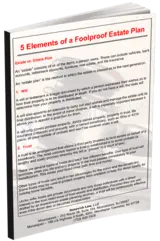Much of the estate planning process involves distributing a person’s assets after they pass away; however, a person must take numerous steps before an estate plan can take effect. This includes more than deciding which beneficiaries get specific assets of the estate creator.
Identifying and putting an accurate value on these assets is also an essential part of the process. The same is true for determining the complete ownership picture for these assets at the time of the trust creator’s passing.
Fortunately, a legal representative at Nesevich Law, LLC could help with the process. A dedicated trust and estate attorney could help resolve issues involving assets and ownership in Moorestown and help family members reach their estate planning goals.
Determining the Value of a Person’s Assets
Determining the value of an asset is a crucial part of the estate planning process. Understanding each asset in a trust is essential, as there can be tax consequences depending on valuation. A beneficiary who inherits an asset that has been overvalued could be forced to pay an estate tax when they should not have to. Knowing the value of these assets is necessary before a trustee effectively administers the estate.
A beneficiary can determine an asset’s worth through various methods. When a conflict arises over the value or ownership of someone’s assets or property, hire a skilled attorney in Moorestown to evaluate.
What Are the Different Types of Asset Ownership?
When a person is the sole owner of the property, they can do with it as they please. They also have leeway during the estate planning to designate any beneficiary they prefer without issue.
What is Joint Ownership?
One of the many factors that can complicate an estate plan is joint ownership. A clear picture of what an estate creator owns and who they own those assets with is as important as determining what an asset is worth. There are various ways a person can take ownership of property during their lifetime. These ownership arrangements can significantly affect what happens to the decedent’s property, such as a home or car, upon their death.
For example, people jointly own property with a “right of survivorship.” Under this concept, when one owner passes away, the other takes full ownership of the asset. This is true even when the person who passed away attempted to gift their share of the asset to a beneficiary through a will or other device. Often, this creates issues among the decedent’s beneficiaries or their family members.
A skilled lawyer in the Moorestown area could help address or avoid these conflicts by creating a comprehensive estate plan that accounts for sole or joint assets and ownership.
Speak With a Hardworking Attorney in Moorestown to Discuss Estate Assets and Ownership
Our legal team members understand the overwhelming and complicated nature of estate matters and could help shoulder some of the burden for you and your relatives. The right attorney could assist you with determining the value of your assets as you develop your estate plan. The same is true when it comes to reviewing ownership of your assets.
Get in touch with an attorney at Nesevich Law, LLC today. We can discuss assets and ownership in Moorestown and determine the best path forward for you and your family during a confidential consultation.

 (856) 439-6223
(856) 439-6223
